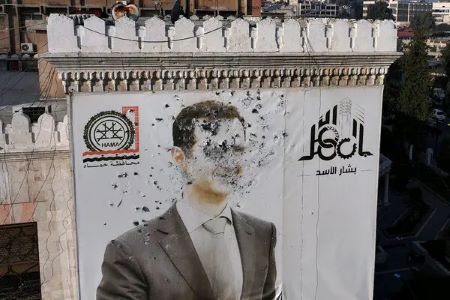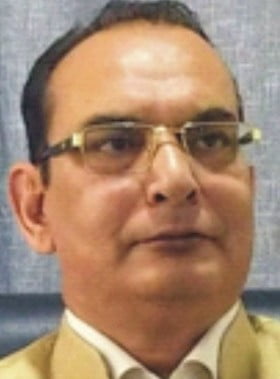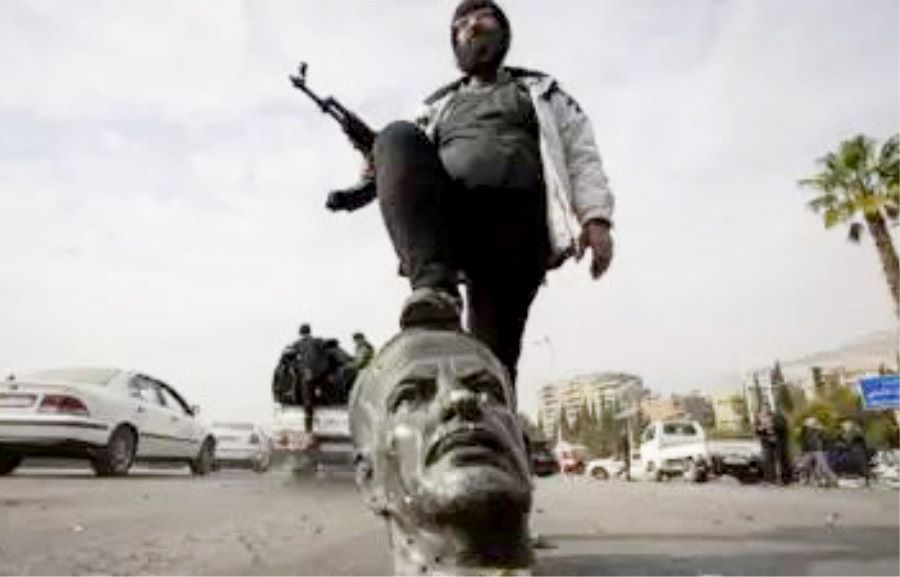The Islamist-led rebel coalition’s seizure of control raises the crucial question: What comes next for Syria and its fractured society?
With reports that Syrian President Bashar Al-Assad has fled the country and the rebel coalition, led by Hayat Tahrir Al-Sham, has seized power and control of major cities in Syria, the bigger question is: What will happen next? How is the West, particularly the US, going to react to the victory of Islamists in Syria?
 After 13 years, it seems that the civil war in Syria might be over, with news of President Bashar Al-Assad being overthrown by a coalition of anti-government forces, which now controls major Syrian cities. However, this victory has significant ramifications, particularly the rise of Islamist power in Syria.
After 13 years, it seems that the civil war in Syria might be over, with news of President Bashar Al-Assad being overthrown by a coalition of anti-government forces, which now controls major Syrian cities. However, this victory has significant ramifications, particularly the rise of Islamist power in Syria.
The so-called Islamic Coalition in Syria is led by Hayat Tahrir Al-Sham (HTS), the most prominent and formidable group among them. The Syrian National Army (SNA), which comprises dozens of factions with various ideologies and receives funding and arms from Turkey, is another coalition partner.
Additionally, the National Liberation Front, which includes factions like Ahrar Al-Sham, aims to “overthrow the [Assad] regime” and “establish an Islamic state governed by Sharia law.”
Further complicating matters is the involvement of coalition members in fighting Kurdish forces. Last week, the Turkish-backed Free Syrian Army claimed it had seized control of Tal Rifaat and other towns and villages in northern Aleppo governorate.
 These territories were previously held not by Assad’s government but by the Syrian Democratic Forces (SDF), a group largely composed of Kurdish fighters from the People’s Protection Units (YPG), which Turkey designates as a terrorist organization.
These territories were previously held not by Assad’s government but by the Syrian Democratic Forces (SDF), a group largely composed of Kurdish fighters from the People’s Protection Units (YPG), which Turkey designates as a terrorist organization.
In southern Syria, fighters from the Druze religious minority have joined the fray. They are actively engaged in As-Suwayda, near the Daraa province, where opposition forces claim to have captured Daraa city.
This complicated consolidation of rebel forces raises a pressing question: With so many ideologically diverse factions now sharing power, will HTS be able to maintain unity, or will this lead to another war over the spoils?
The Syrian Saga
The Syrian tragedy dates back to the 1970s, when Bashar’s father, Hafez Al-Assad, a member of the Alawi minority—a heterodox Shia sect historically persecuted in Syria—rose to power. Seizing control from a Baathist military junta in 1970, he centralized power in the presidency.
In February 1982, Hafez Al-Assad brutally suppressed a Muslim Brotherhood uprising in Hama, killing more than 25,000 people, allegedly using chemical weapons. For the regime’s opponents, Hama became a rallying cry during the 2011 uprising.
Who Are the Rebels?
Hayat Tahrir Al-Sham (HTS) originated as Jabhat al-Nusra in 2011, a direct affiliate of Al-Qaeda. Abu Bakr Al-Baghdadi, the leader of the self-styled Islamic State (IS) group, was also involved in its formation.

HTS was initially regarded as one of the most effective groups fighting against Assad but was driven more by jihadist ideology than revolutionary zeal.
In 2016, HTS leader Abu Mohammed Al-Jawlani broke ties with Al-Qaeda, dissolved Jabhat al-Nusra, and rebranded it as Hayat Tahrir al-Sham after merging with similar groups. Despite these changes, HTS remains controversial due to alleged human rights abuses and infighting with other factions.
HTS’s primary goal has shifted from establishing a global caliphate, like IS, to focusing on fundamentalist Islamic rule within Syria.
Geopolitical Ramifications
The United States has reduced its presence in Syria, notably pulling back forces in 2019 before Turkey’s invasion of northern Syria. Turkey, meanwhile, has pushed Kurdish forces—formerly the US’s main partners in the fight against IS—away from border areas.
 Russia and Iran have both supported Assad’s regime militarily. However, reports suggest that Iran may be withdrawing its forces following the coalition’s latest offensive, coinciding with Russia’s reduced support for Assad amid its involvement in the Ukraine conflict.
Russia and Iran have both supported Assad’s regime militarily. However, reports suggest that Iran may be withdrawing its forces following the coalition’s latest offensive, coinciding with Russia’s reduced support for Assad amid its involvement in the Ukraine conflict.
President-elect Donald Trump has stated that the US should avoid further military engagement in Syria, tweeting: “This is NOT our fight.” However, whether the US can remain a passive observer as HTS consolidates power remains uncertain. ![]()
Also Read: Surveys of Mosques: Opening the Floodgates
Disclaimer : PunjabTodayNews.com and other platforms of the Punjab Today group strive to include views and opinions from across the entire spectrum, but by no means do we agree with everything we publish. Our efforts and editorial choices consistently underscore our authors’ right to the freedom of speech. However, it should be clear to all readers that individual authors are responsible for the information, ideas or opinions in their articles, and very often, these do not reflect the views of PunjabTodayNews.com or other platforms of the group. Punjab Today does not assume any responsibility or liability for the views of authors whose work appears here.
Punjab Today believes in serious, engaging, narrative journalism at a time when mainstream media houses seem to have given up on long-form writing and news television has blurred or altogether erased the lines between news and slapstick entertainment. We at Punjab Today believe that readers such as yourself appreciate cerebral journalism, and would like you to hold us against the best international industry standards. Brickbats are welcome even more than bouquets, though an occasional pat on the back is always encouraging. Good journalism can be a lifeline in these uncertain times worldwide. You can support us in myriad ways. To begin with, by spreading word about us and forwarding this reportage. Stay engaged.
— Team PT

